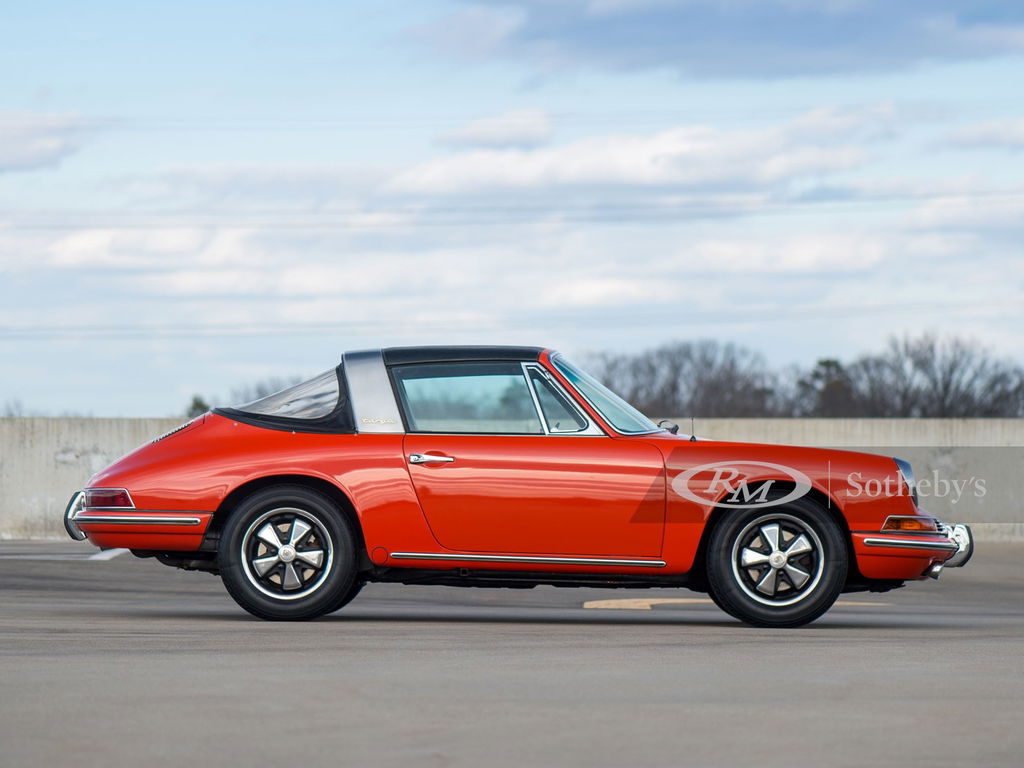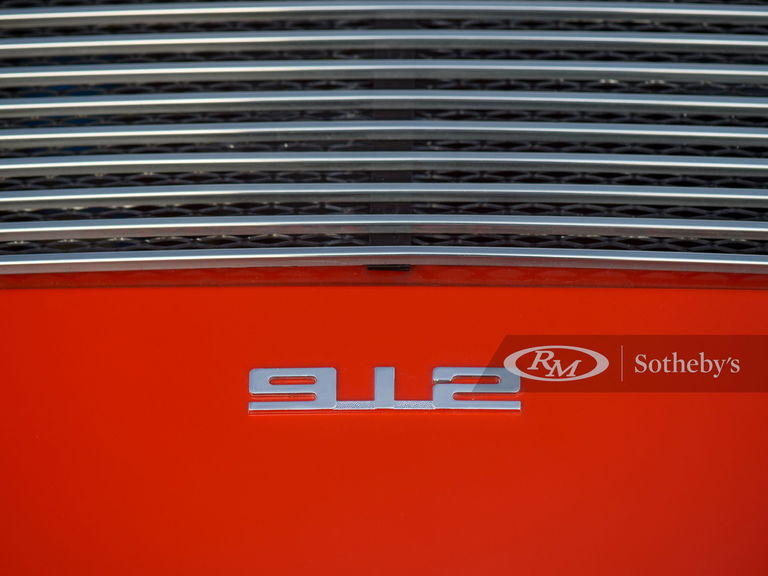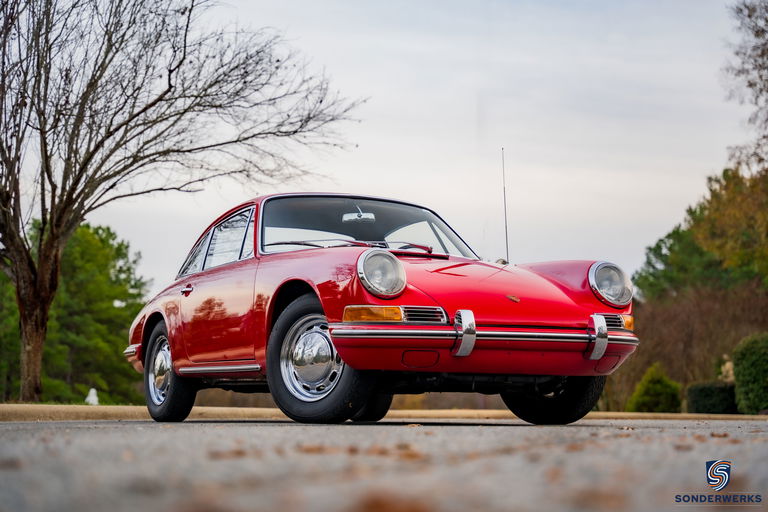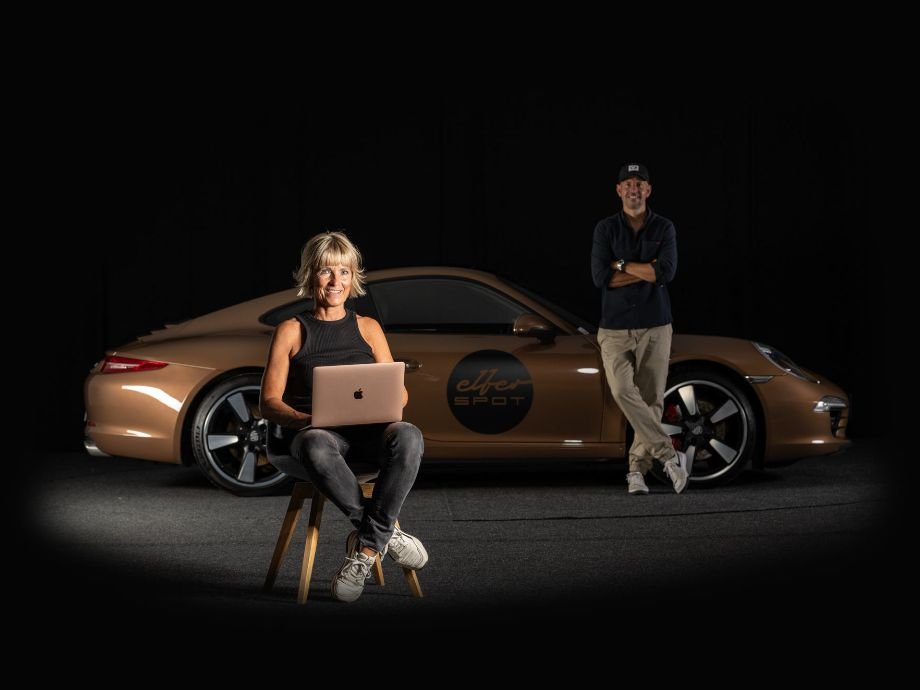The Porsche “soft-window” Targa configuration was a true example of innovation for the German manufacturer. First revealed on a Porsche 911 in 1966, the Targa was designed to bring the open-air experience to the world-beating sportscar without compromising structural rigidity. Further, at the time, it was feared that impending American safety regulations would effectively ban the traditional cabriolet. The solution was the Targa—a compromise that would soon become an enduring addition to the Porsche model range. The first Targas paired their signature removable roof panel with a foldaway plastic rear “soft” window.
The 912, Porsche’s entry-level model, would not miss out on this development. Similar in style to the 911 but powered by a flat-four engine and prioritizing handling over outright performance, the 912 eventually received many of the innovations first deployed on the six-cylinder car. And so in 1967 the 912 Targa was born, featuring the same removable roof and plastic rear windows.
However, considering the relative popularity of the 911, and the fact that Porsche introduced a hard rear window for Targas in 1967 (initially as an option), only roughly 2,500 912 soft-window Targas were ever made. Some were later converted to hard-window cars by their owners, making these already uncommon 912 Targas in their original configuration even rarer and more desirable.
This example, chassis number 12870719, was sold new by Volkswagen Pacific in Culver City, California on 17 May 1968 to a gentleman in Encino, California. On 31 July 1972 it changed hands, going to its second owner in San Diego. According to historical files, this second owner of the car retained it from 1972 until 2012, amassing a thorough maintenance and documentation during his custodianship. Toward the end of his ownership, the car’s heads were rebuilt, and piston rings were replaced. Further, the metal of the engine bay was powder coated and new sound insulation was installed.
Shortly afterward, the car exchanged hands once more, entering the possession of a dedicated enthusiast. In recent years, the car underwent a restoration, wherein its 1.6-liter flat-four engine—the original, numbers-matching powerplant as confirmed by the accompanying Porsche Certificate of Authenticity—was overhauled. The car was also refinished in its factory colors of Tangerine over black leatherette at this time. Driven minimally following this work, the car presents well today.
Accompanied by its original driver’s manual, Porsche maintenance record book, Porsche COA, correspondence, invoices, receipts, and spare wheel and jack, this 912 presents an excellent opportunity to acquire an uncommon soft-window example of Porsche’s legendary Targa model.















